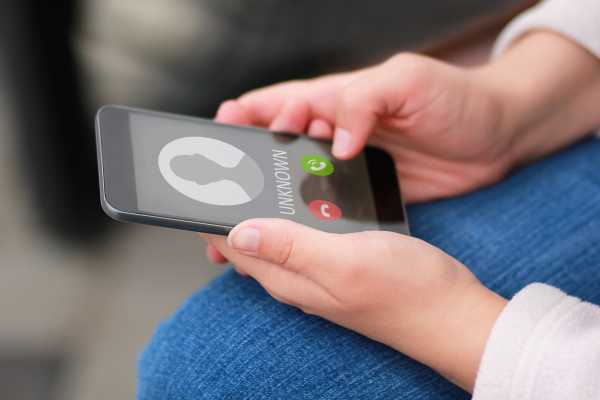
This article is part of a series of articles titled

The Federal Communications Commission voted unanimously on Thursday to allow phone carriers to block all robocalls by default. Previously, they were allowed to warn you about spam calls and block certain types of particularly scary ones, but had legal obligations to complete most calls.
This is the most significant action yet in the FCC’s battle against spam calls, which have — you’re not imagining it — gotten dramatically worse and more insistent over the past few years. As The Verge’s Makena Kelly pointed out in May, “over 48 billion robocalls were placed in the US last year, which is 46 percent more than just a year earlier.” FCC Commissioner Jessica Rosenworcel added Thursday that Americans receive “about 5 billion [robocalls] a month,” up from 2 billion when this administration was appointed by President Trump in January 2017. “That is about two thousand robocalls every second of every day.”
The technology just keeps getting better and cheaper — there’s almost no overhead to setting up a robocall operation, and each call to a new unsuspecting person costs an estimated one-tenth of a penny. The techniques are getting more sophisticated too. You may have noticed that an increasing number of your spam calls come from the zip code you live in, or one you’ve lived in previously. This is called “neighborhood spoofing,” and it’s a recent tactic designed to trick people more easily into picking up an unwanted call.
Americans currently receive about 5 billion robocalls a month, according to the FCC
These operations are also increasingly difficult to trace. “How do you fine someone who sets up shop in Burundi — if that’s even where they really set up shop?” the Washington Post’s Helaine Olen asked in March. “It’s possible that’s a spoofed number, too.”
If you use AT&T or Comcast, you may have noticed spam warnings recently on unknown numbers. These are a result of carrier tests of technology called STIR/SHAKEN, an acronym for Secure Telephone Identity Revisited and Signature-Based Handling of Asserted Information Using Tokens. This technology does not block robocalls itself; it merely flags their possibility. It’s been used by popular robocall-blocking apps like Robokiller and Nomorobo for several years, and those companies claim to have refined its accuracy with their own algorithms.
Notably, the tech identifies whether a call is real and draws a big question mark over calls that could be scams — which means it’s still pretty rough. It should get smarter when it’s more widely used, allowing patterns to emerge.
As such, you can still opt out of robocall blocking if you for some reason love robocalls or if you’re worried about the heavy hand. As Frank Kerney, a consumer protection attorney with the Florida-based law firm Morgan & Morgan points out, you’d be right to be concerned about your bank or pharmacy or doctor getting through. “Those are often robocalls. We want to get those calls,” he tells me. (Yesterday’s ruling also allows carriers to provide “whitelist” services, which would give customers the power to block calls from any number not saved in their contacts, a rather time-intensive solution to this problem.)
The FCC’s actions are “a huge step in the right direction for consumers,” Kearney adds, but there’s also cause for concern in the language the agency used, which did not require carriers to offer robocall blocking free of charge to their customers. “That’s disappointing and that’s something that the FCC should address,” Kearney says. “[Carriers] now have the ability to block these calls; they should be doing that for free. These calls have hijacked our cellphones.”
“[Carriers] now have the ability to block these calls; they should be doing that for free”
Both Rosenworcel and Commissioner Geoffrey Starks gave space to this issue in their published opinions on the vote, with Starks writing, “I expect call blocking services should be offered to consumers for free. I’d note that this item makes it abundantly clear that providers who implement these services will save billions of dollars as network capacity is freed up and customer service representatives field fewer complaints.”
“I think robocall solutions should be free to consumers. Full stop,” Rosenworcel wrote.
Spam calls have been a popular bipartisan cause for decades now, and Congress passed the Telephone Consumer Protection Act in 1991. This is the law that set up the Federal Trade Commission’s Do Not Call program, which was sort of dubiously helpful in that it asked telemarketers to maintain their own lists of people they weren’t allowed to contact. And telemarketers, while annoying, were at least human.
FCC Chair Ajit Pai regularly refers to robocalls as a “scourge” on the country
The FCC created a “Robocall Strike Force” in 2016 to combat the escalating problem of non-human callers. So far, it has done so by attempting to levy fines, to mixed success. The $120 million fine that notorious Miami robocall kingpin Adrian Abramovich was ordered to pay last year (after placing 96 million scammy travel deal calls in just one year) was hailed as a huge success, but it’s obviously done very little to stymie the increase in these types of calls.
Still, if you’ve stopped answering calls from unknown numbers for fear that some non-human voice is just going to freak you out with tales of invalidated Social Security numbers and grandchildren stranded in Mexico, there could be some relief coming. In a statement yesterday, FCC Chair Ajit Pai said that carriers would have through the end of the year to incorporate STIR/SHAKEN tech voluntarily before the FCC pursues regulatory measures to make it mandatory.
“Since the beginning of 2017, fighting illegal robocalls has been the FCC’s top consumer protection priority,” Pai’s statement reads. “I commend those carriers who have stepped up to the plate and already indicated that they will implement call-blocking services by default. And I encourage those who haven’t already done so to listen to the American people and help to end this scourge.”
Sign up for The Goods’ newsletter. Twice a week, we’ll send you the best Goods stories exploring what we buy, why we buy it, and why it matters.
Sourse: vox.com






